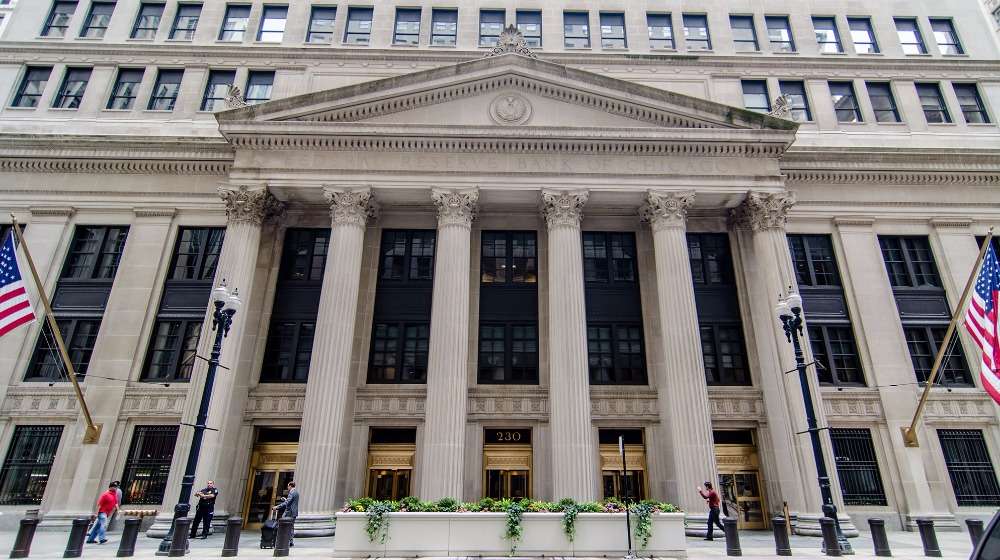Economy
Rate Hike Trickles Down Quickly – Just Not for the Good Stuff

On Wednesday, the Federal Reserve raised interest rates by a quarter percent in what was regarded as a widely expected move. Although this is only the third rate increase in the last 10 years, it’s pretty clear that the Fed believes in the current strength of the economy and more rate hikes are on the way in 2017.
How Do These Rate Hikes Affect You and Your Wallet?
When the Fed met in February, they reiterated their faith in the economy but chose to not raise interest rates, causing many economists to believe a rate hike was coming in either March or June at the latest. Turns out, we only had to wait a month as the Fed raised rates by 0.25 points on Wednesday. That rate affected the Federal Funds Rate, which is a short-term interest rate applied to financial institutions who loan funds to other financial institutions. The higher the federal fund rate, the more expensive it is to borrow money.
So what does this mean for you?
For starters, keep an eye on your credit cards. Credit card rates follow the Fed’s lead. As the Federal Fund Rate goes up, variable APRs also go up. So a 0.25% increase in the Federal Fund Rate means a 0.25% increase in your variable rate credit card.
On top of that, people may soon find themselves priced out of purchasing new homes. While the mortgage rate itself doesn’t necessarily reflect the Federal Fund Rate, the rate increase does make mortgage payments themselves more expensive. And mortgage rates typically follow economic sentiment. So because many believe Trump’s tax cuts will spur more buying power, mortgage rates have risen steadily. A higher price for a mortgage on a new home, paired with higher mortgage payments, means homes may become too expensive for many first time buyers.
Car loans also don’t rise with the Federal Fund Rate. They’re insulated from rate hikes, and in fact stay lower due to competition among loan companies. Also not affected by Federal Fund Rate increases?
Interest rates on savings.

Interest rates banks pay on savings accounts and CDs are not based on Fed hikes, but on competitive factors including how much a bank’s profits rely on savings accounts. Most banks act as lenders and earn interest by underwriting loans and offering credit terms. As such, don’t expect to see the money in your account worth any more.
Rate hikes mean that private student loans also get more expensive, as well as equity lines of credit on your home. However, while there are downsides, interest rate hikes are vital to our economy. The reason the interest rate is so important is because it’s a tool used to provide relief during tough economic times. The Federal Funds Rate rises to reflect low unemployment and a strong economy. When the economy begins to struggle, the biggest tool the Federal Reserve has in its arsenal is to lower interest rates to relieve financial stress from financial institutions and lenders, and thus consumers.
Watch this video from CBS This Morning to know how rate hikes can affect every consumer:
You should keep an eye on any of your accounts that follow the Federal Fund Rate, and expect more rate hikes in 2017.
More Americans than ever are defaulting on student loan payments, get the whole story right here.
Follow us on Facebook and Twitter for more news updates!
The statements, views, and opinions of any article, contribution, editorial, or advertisement in this publication are not necessarily those of The Capitalist or its editorial staff, and are not considered an endorsement, sponsorship, or recommendation of any referenced product, service, issuer, or groups of issuers.
This publication provides general information about certain subjects, and should not be construed or taken as advice (legal, financial, investment, tax, or otherwise). Do not construe or take any information in this publication as a solicitation, offer, opinion, or recommendation to buy or sell any securities, bonds, or other financial instruments or to provide any legal, financial, investment, tax, or other advice or service about the suitability or profitability of any financial instruments or investments.
The Capitalist disclaims any liability for the accuracy of or your reliance on any statements, views, opinions, or information in this publication.




Pingback: Trump's America First Plan Pushes Military at Expense of Environmental Protection